Alaphilippe: My first feeling was one of disappointment
Frenchman takes second at La Fleche Wallonne for second successive year
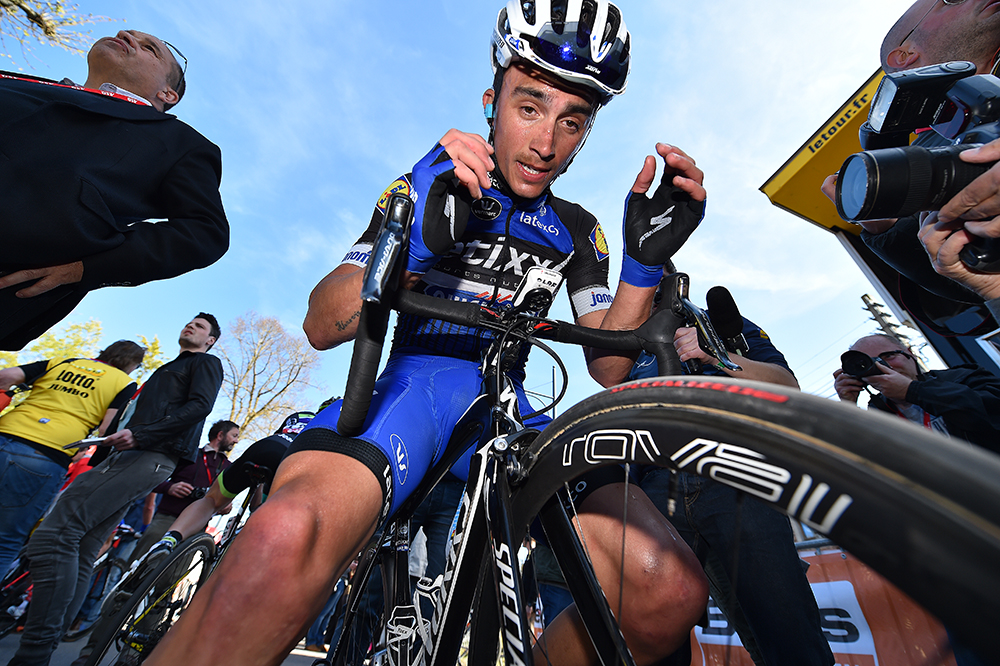
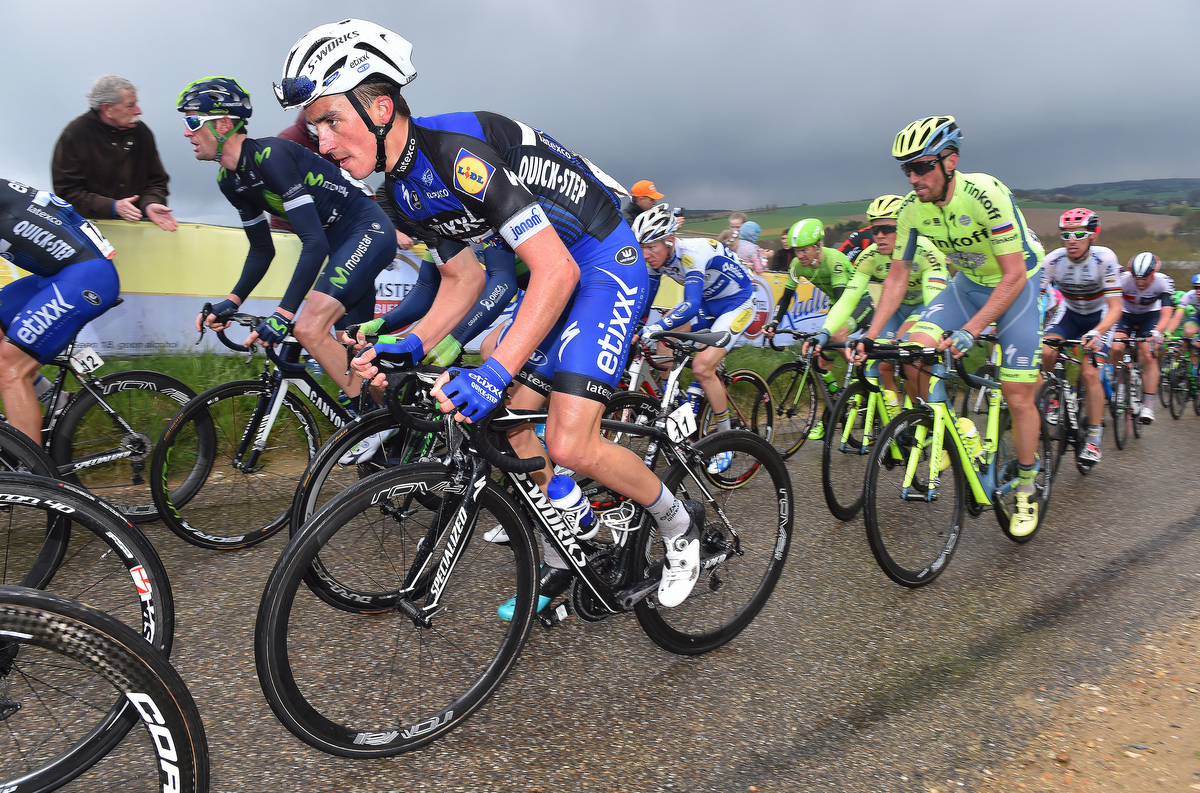
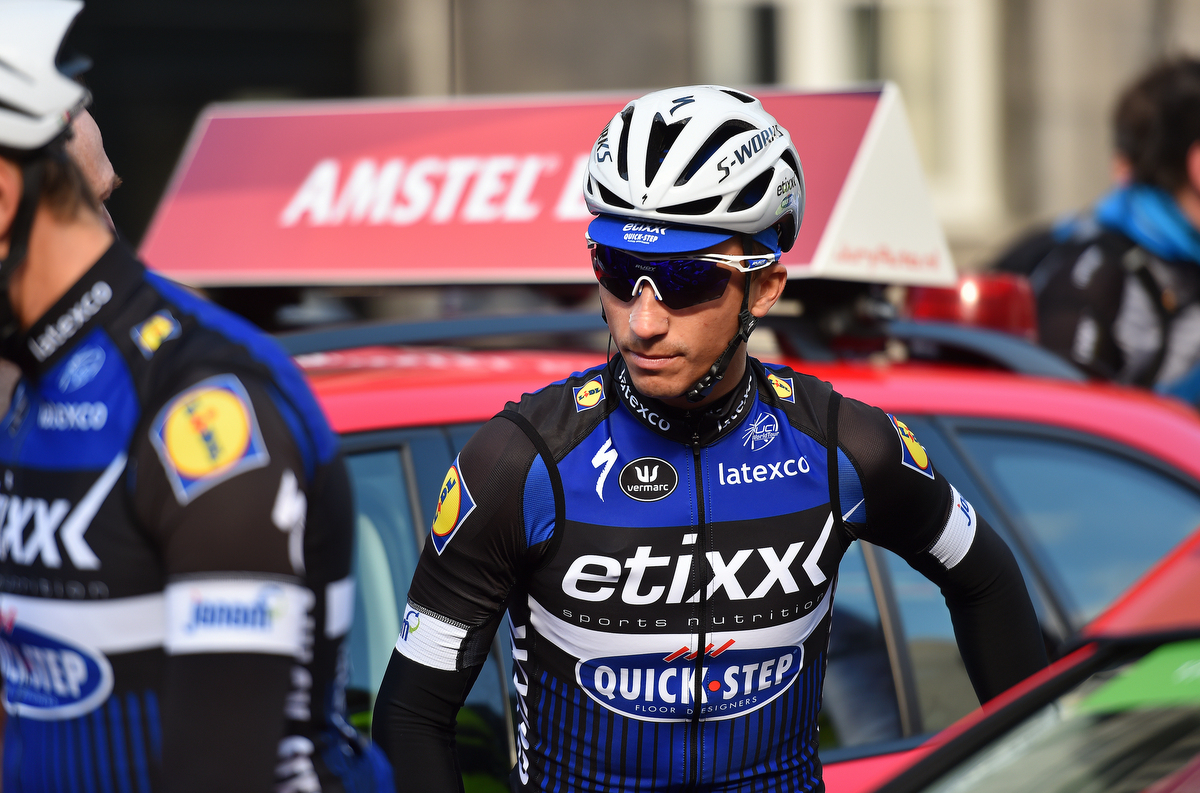
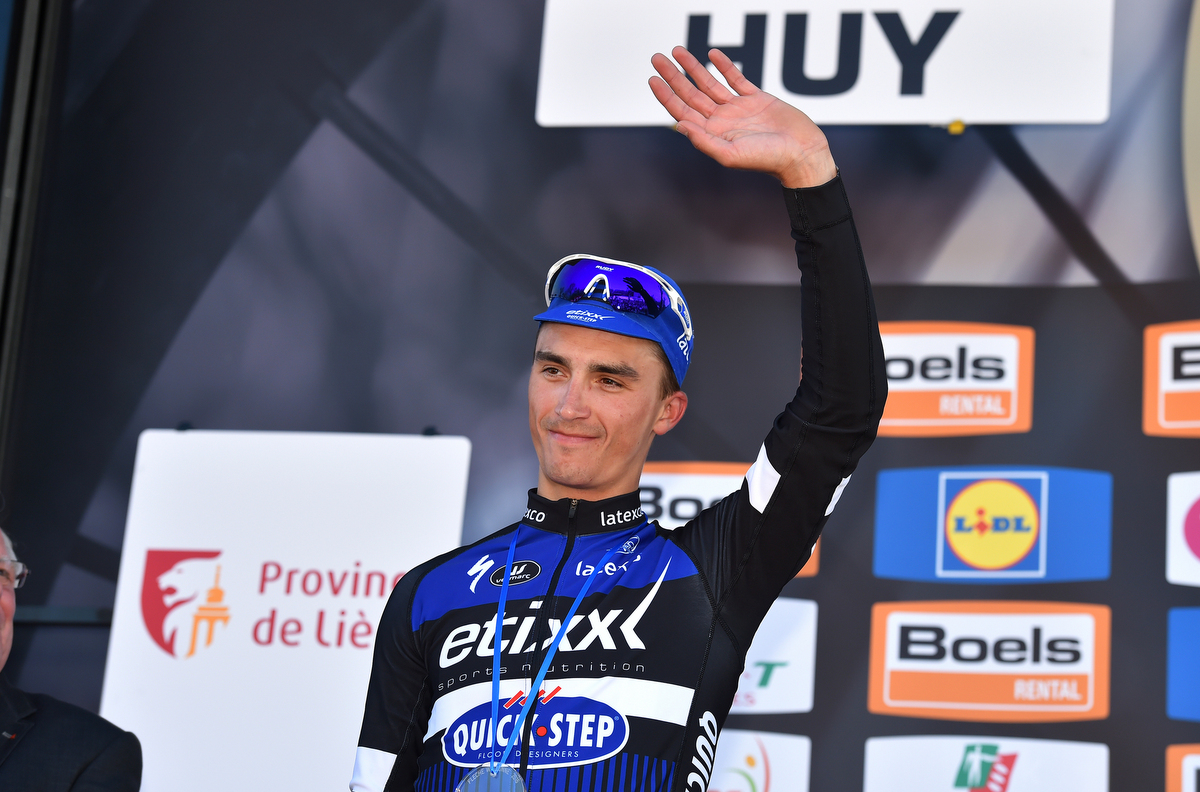
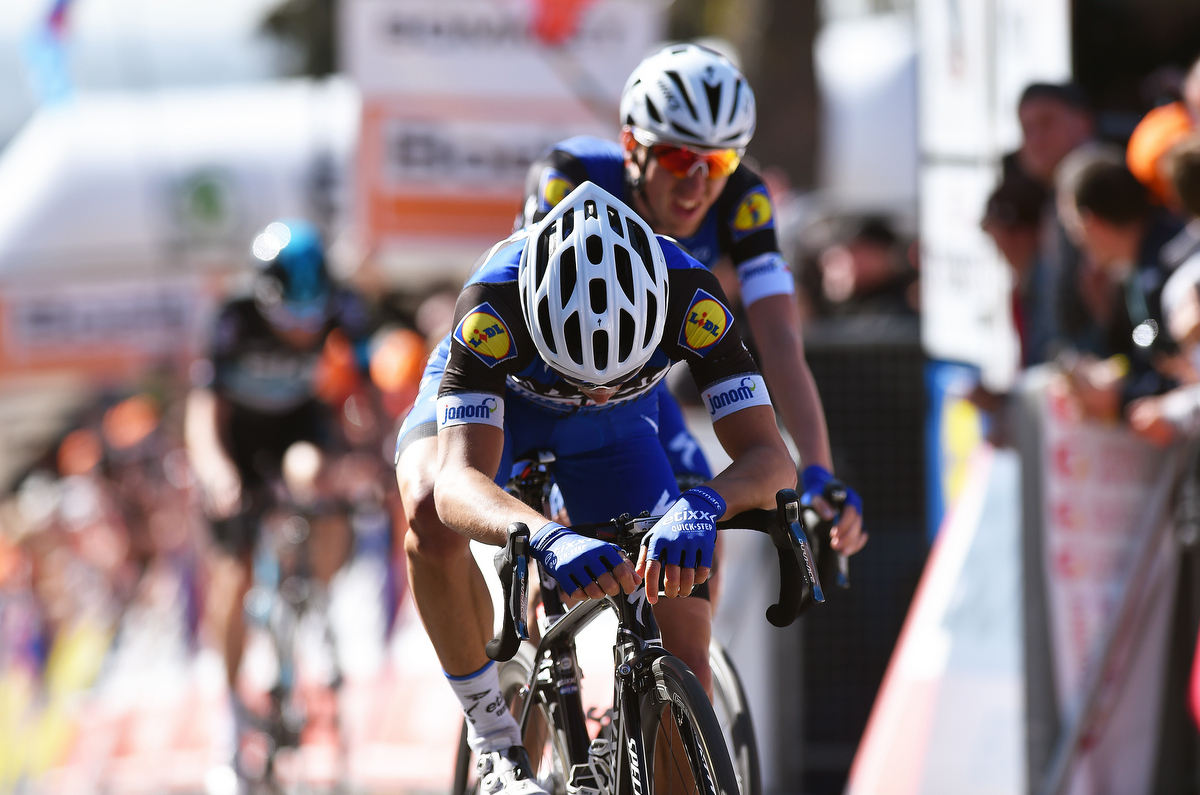
What a difference a year makes. Twelve months ago, a stunned Julian Alaphilippe (Etixx-QuickStep) told reporters that he could “only be pleased” with second place behind Alejandro Valverde (Movistar) on his La Flèche Wallonne debut.
Alaphilippe returns from mononucleosis in Provence
Alaphilippe in action for Etixx-QuickStep at Brabantse Pijl - News Shorts
Alaphilippe and Dan Martin will lead Etixx-QuickStep at La Fleche Wallonne - News Shorts
La Fleche Wallonne: Valverde wins on the Mur de Huy
Valverde moves into class of his own with fourth La Fleche Wallonne victory
This time around, Alaphilippe missed out to Valverde in almost identical circumstances, and the most notable difference was his reaction. Just like 2015, Alaphilippe diligently stalked Valverde on the upper slopes of the Mur de Huy, but was again unable to come around the Spaniard as the road flattened out, and he slammed on his handlebars in frustration as he crossed the line.
As Alaphilippe stood on the podium alongside Valverde shortly afterwards, he was able to exchange a rueful, resigned smile with his teammate Dan Martin, who placed third, and by the time he sat down in the press room some 40 minutes after the finish, he was already willing to draw the positives from his near miss.
“Yes, I was disappointed at the finish and it’s not easy to control your emotions at that point,” Alaphilippe admitted. “Just after the line, my first feeling was one of disappointment at being so close at Flèche Wallonne. Afterwards, I started to say to myself that was my second participation and my second podium finish, and I’ve realised that this is a race I can win in the future.”
Alaphilippe’s initial frustration will also surely have been mitigated by thoughts of the road he travelled to this year’s Classics. When the 23-year-old was diagnosed with mononucleosis at the end of last season, it seemed improbable that he would be able to return to form quickly enough to repeat his breakout performances of last April, when he placed second at both Flèche and Liège-Bastogne-Liège.
“I try not to think about it now, I’ve put it behind me. I started feeling very tired at the end of last season, I wasn’t recovering from efforts. After the Worlds, I went and did some tests and I found that I had mononucleosis. It was a blessing in disguise, as I was able to recover over the winter, though I was inactive for three months and that was hard psychologically,” Alaphilippe said.
“I’m very happy to have regained my condition after my illness. I started training late, I started racing late and I had to work very hard to get to the Ardennes classics in top form."
The latest race content, interviews, features, reviews and expert buying guides, direct to your inbox!
Alaphilippe abandoned the three stage races he competed in so far this season before re-emerging to place eighth at Brabantse Pijl last week and then sixth at Amstel Gold Race. At La Flèche Wallonne, he lined up as co-leader with Dan Martin, with orders to sit on Valverde’s wheel all the way to the top, while the Irishman attacked ahead of the summit.
"I started feeling better at the Volta a Catalunya, and after Brabantse Pijl, I knew I could be competitive. Amstel was the confirmation,” Alaphilippe said. “Today I was strong but Valverde was just stronger than me. Dan felt good, he needed to make a longer effort than me. We can have no regrets, Alejandro was stronger than us.”
With Martin at Liège-Bastogne-Liège
Alaphilippe smiled when asked if he had seen Martin’s arrival during the off-season as a threat to his status in Etixx-QuickStep’s Ardennes Classics line-up. “No, I’m sociable,” he joked. “Really, it’s good to have Dan on the team, I’m glad to have him here. He’s got a lot of experience in these races and we talked a lot at the training camp. It’s a very good thing and I’m happy to keep progressing with a rider like Dan at my side.”
Martin sounded an optimistic note about his and Alaphilippe’s chances of denying Valverde the third Ardennes double of his career at Liège-Bastogne-Liège on Sunday, reckoning that a foil is of more value at La Doyenne than on the breathless slopes of the Mur de Huy.
“They are two very different races and very different efforts. Liege has more kilometres, different climbs and the weather will be more complicated. All of that will make the race different but it will be decided by your legs,” said Alaphilippe, who downplayed the impact of the expected foul weather.
“Bad weather is the same for everybody. It’s an added difficulty to the race but you have to take it on board and adapt. I’m not thinking of it now, though. I’ll take a look at the weather on the eve of the race.”

Barry Ryan was Head of Features at Cyclingnews. He has covered professional cycling since 2010, reporting from the Tour de France, Giro d’Italia and events from Argentina to Japan. His writing has appeared in The Independent, Procycling and Cycling Plus. He is the author of The Ascent: Sean Kelly, Stephen Roche and the Rise of Irish Cycling’s Golden Generation, published by Gill Books.